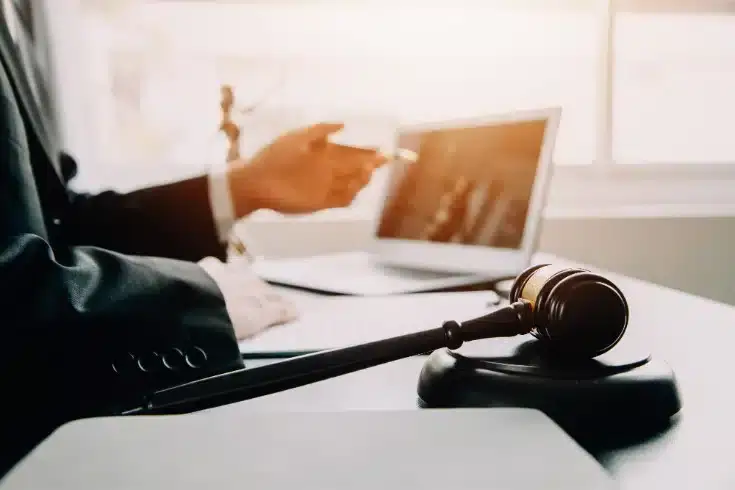The Significance and Practice of Copyright in VTuber Activities

Copyright for VTubers
Copyright for VTubers refers to the rights that protect illustrations, models, and videos related to VTubers. By receiving protection under copyright, VTubers can prevent unauthorized use of their personality illustrations, models, and streamed videos.
For instance, a malicious third party might create a model that closely resembles the one used by VTuber A and impersonate VTuber A to conduct streams. In such cases, if VTuber A holds the copyright, it becomes easier to take legal actions such as seeking injunctions or claiming damages.
In other words, copyright is essential for taking appropriate measures when personality illustrations, models, or streamed videos are misappropriated.
Ownership of VTuber Copyrights
Next, we will discuss the ownership of VTuber copyrights, which generally falls into the following three categories:
- Primarily belongs to the creator
- Belongs to the transferee if transferred
- Belongs to the secondary creator for derivative works
We will explain these three points in detail.
Primarily Belongs to the Creator
The copyright for illustrations and models generally belongs to the creator. This is because, as stated below, the copyright is held by the person who creates the work (the author).
Japanese Copyright Law, Article 2, Paragraph 1, Item 2: “Author” refers to the person who creates a work.
Japanese Copyright Law, Article 17: The author enjoys the rights stipulated in the following article, Paragraph 1, Article 19, Paragraph 1, and Article 20, Paragraph 1 (hereinafter referred to as “moral rights of authors”), as well as the rights stipulated in Articles 21 to 28 (hereinafter referred to as “copyright”).
For example, the author of an illustration or 3D model is typically the creator of that illustration or 3D model. Therefore, in the absence of any agreement, the creator holds the copyright to the avatar.
Belongs to the Transferee if Transferred
If the copyright is transferred from the creator, it belongs to the transferee.
In other words, if a VTuber receives the copyright of an avatar from the creator, they acquire all rights, including reproduction rights, and can freely use the avatar.
Incidentally, there is another method for a VTuber to use an avatar they commissioned, which is to obtain a license. In this case, the copyright remains with the creator, and the VTuber obtains permission to use the avatar within a specified scope agreed upon with the creator. The VTuber can use the avatar within the licensed scope.
There is a significant legal difference between these two methods.
If the copyright is transferred, as mentioned above, the transferee can demand that a third party cease any infringement of the copyright. However, if only a license is obtained, this is not possible. For example, if a malicious third party is “unauthorizedly producing and selling merchandise using the VTuber’s avatar,” the VTuber cannot demand that the third party stop the infringement if only a license is obtained. In such cases, the creator must make the demand to the third party.
Therefore, from the perspective of VTuber activities, it is preferable to receive a copyright transfer.
Belongs to the Secondary Creator for Derivative Works
Creating derivative works without the permission of the creator (copyright holder) infringes on the adaptation right (the right to translate or adapt a work) and the right to maintain the integrity of the work (the right to prevent alterations against the author’s will), which are exclusive to the copyright holder, and is therefore prohibited.
However, if a derivative work is created with the creator’s permission, the copyright for that portion belongs to the secondary creator. This is because even in derivative works, the newly added creative expressions are recognized as the secondary creator’s copyright.
For example, if a VTuber who commissioned a LIVE2D model requests additional expressions or different hairstyles from another creator, the copyright for those expressions or hairstyles belongs to the new creator.
Market Rates for Copyright Transfer to VTubers
The market rates for transferring copyrights to VTubers vary widely and can differ significantly depending on the creator.
From a VTuber’s perspective, acquiring copyright transfer might seem ideal. However, for creators, it involves granting others the rights to freely use their illustrations, which carries considerable risk.
Once the copyright is transferred, even though the artwork is originally created by the artist, they can no longer use it as they please.
As a result, the fee for copyright transfer can sometimes be more than double the original commission fee.
Rights of VTubers When Copyright is Infringed
Next, we will explain the rights of VTubers when their copyright is infringed.
There are mainly three points to consider:
- Claim for Damages
- Injunction Request
- Criminal Complaint
We will explain these three points by referring to the actual provisions of the law.
Claim for Damages
The first right when copyright is infringed is the claim for damages.
In the event of copyright infringement, it is possible to claim damages as a tort under Article 709 of the Japanese Civil Code.
Article 709 of the Japanese Civil Code: A person who infringes the rights or legally protected interests of another intentionally or negligently shall be liable for the damages resulting therefrom.
Injunction Request
The second right when copyright is infringed is the injunction.
If copyright is being infringed or is likely to be infringed, one can request the cessation or prevention of the infringing act.
Article 112 of the Japanese Copyright Act: The author, copyright holder, publisher, performer, or neighboring rights holder may request the cessation or prevention of infringement from a person who infringes or is likely to infringe their moral rights, copyright, publishing rights, performer’s moral rights, or neighboring rights.
Criminal Complaint
The third right when copyright is infringed is the criminal complaint.
In principle, those who infringe copyright may face imprisonment of up to 10 years or a fine of up to 10 million yen.
Article 119 of the Japanese Copyright Act: A person who infringes copyright, publishing rights, or neighboring rights (excluding those who reproduce works or performances for private use as stipulated in Article 30, paragraph 1, including cases where it is applied mutatis mutandis in Article 102, paragraph 1, and the same applies in paragraph 3; those who engage in acts deemed to infringe copyright, publishing rights, or neighboring rights under the provisions of Article 113, paragraphs 2, 3, or 6 to 8, including rights deemed to be neighboring rights under the provisions of paragraph 9 of the same article, and the same applies in Article 120-2, item 5; those who engage in acts deemed to infringe copyright or neighboring rights under the provisions of Article 113, paragraph 10, or those listed in item 3 or 6 of the next paragraph) shall be subject to imprisonment for up to 10 years, a fine of up to 10 million yen, or both.
Measures for VTubers Operating with License Agreements Instead of Copyright Transfers
As mentioned above, when a VTuber operates under a license agreement without receiving a copyright transfer, the VTuber does not hold the copyright and therefore cannot naturally receive its protection.
To address issues such as impersonation, it is crucial for the involved parties to agree on countermeasures in advance.
For instance, in the event of impersonation, it is advisable to have an agreement where the Japanese copyright holder commits to eliminating any infringement.
Summary: Copyright Supporting VTuber Activities is Crucial for Both VTubers and Creators
As discussed, we explained the significance of copyright for VTubers, along with the ownership of copyright and the standard terms for copyright transfer.
In VTuber activities, copyright plays a vital role in protecting personalitys and avoiding disputes. Clearly defining contract terms between creators and VTubers in advance, and understanding each party’s rights and obligations, is key to supporting healthy VTuber activities.
Category: Internet





















